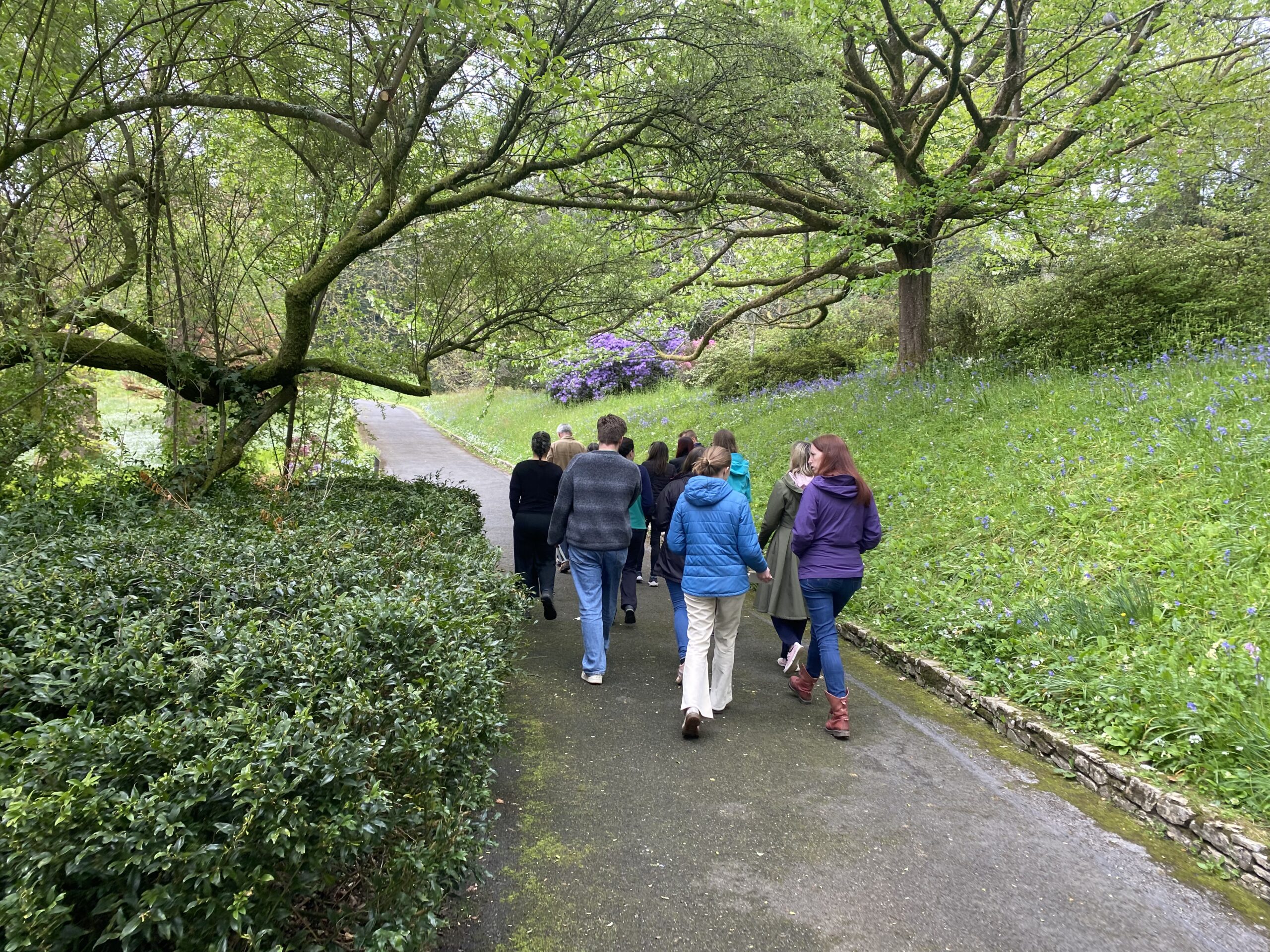Reflections on the 2025 ACCESS Leadership College from Richard Bridge
Published on 28 May 2025

Blog by Richard Bridge, ACCESS Leadership College Fellow. Richard is Head of Monitoring and Evaluation at the Department for Environment, Food and Rural Affairs (Defra).
York 5am. Alarm clock. I’m not good early mornings, but after taking a combo of LNER and GWR via London (rather than Cross Country – if you know, you know), I had come round by 11am where I strolled down the train to meet Jaya. And then Helen jumped on at Exeter. Whereupon, after annual pleasantries, we started the perennial conversation of the stickiness of the ‘glue’ between us all – has the Leadership College met its goals?
This year little doubt in my mind that the star showing was Dr Gemma Harper from JNCC, who had us hooked with her talk on ‘what is life calling you to do?’. A s(l)ide point here – The most effective use of Powerpoint. Sparse text, interesting visualisation (1971 was a cool year followed by a picture of baby Gemma), powerful poetry (listen to Amanda Gorman reading Earthrise and you can’t fail to be moved), interweaved by extraordinarily effective use of personal narrative and iconic photography.

Earthrise seen from the Moon
I really felt she had everyone quite spellbound by challenging us all to incorporate hope as a leadership skill and then to take the next step
‘What would it take for you to be a good ancestor?’
Reflecting back, she made an incredibly powerful argument against leadership being the version tied to the corporate world with all its inherent structural, cultural and traditional hierarchies of influence, age, performed masculinity and whiteness – but instead focussing on the crucial issue of collective leadership where organisations permeate cultures of a growth mindset, learning and moreover hope.
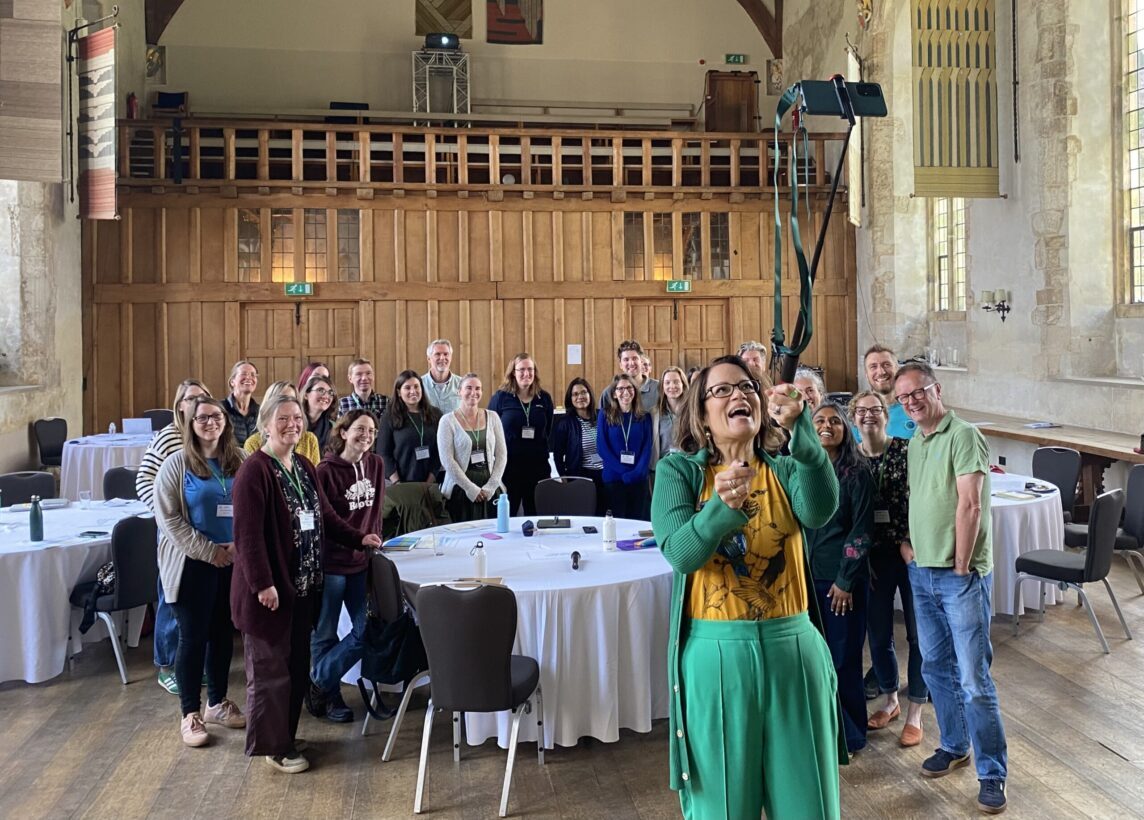
Dr Gemma Harper OBE with the ACCESS Leadership College
Before that, the college had been kicked off by a philosophically complimentary talk by Professor Michael Winter around nature recovery, but drilling down more specifically the key question faced by Access Taskforce 2 ‘How can the social sciences be more effectively deployed to reconfigure land use and land management policy in the UK to deliver nature recovery?
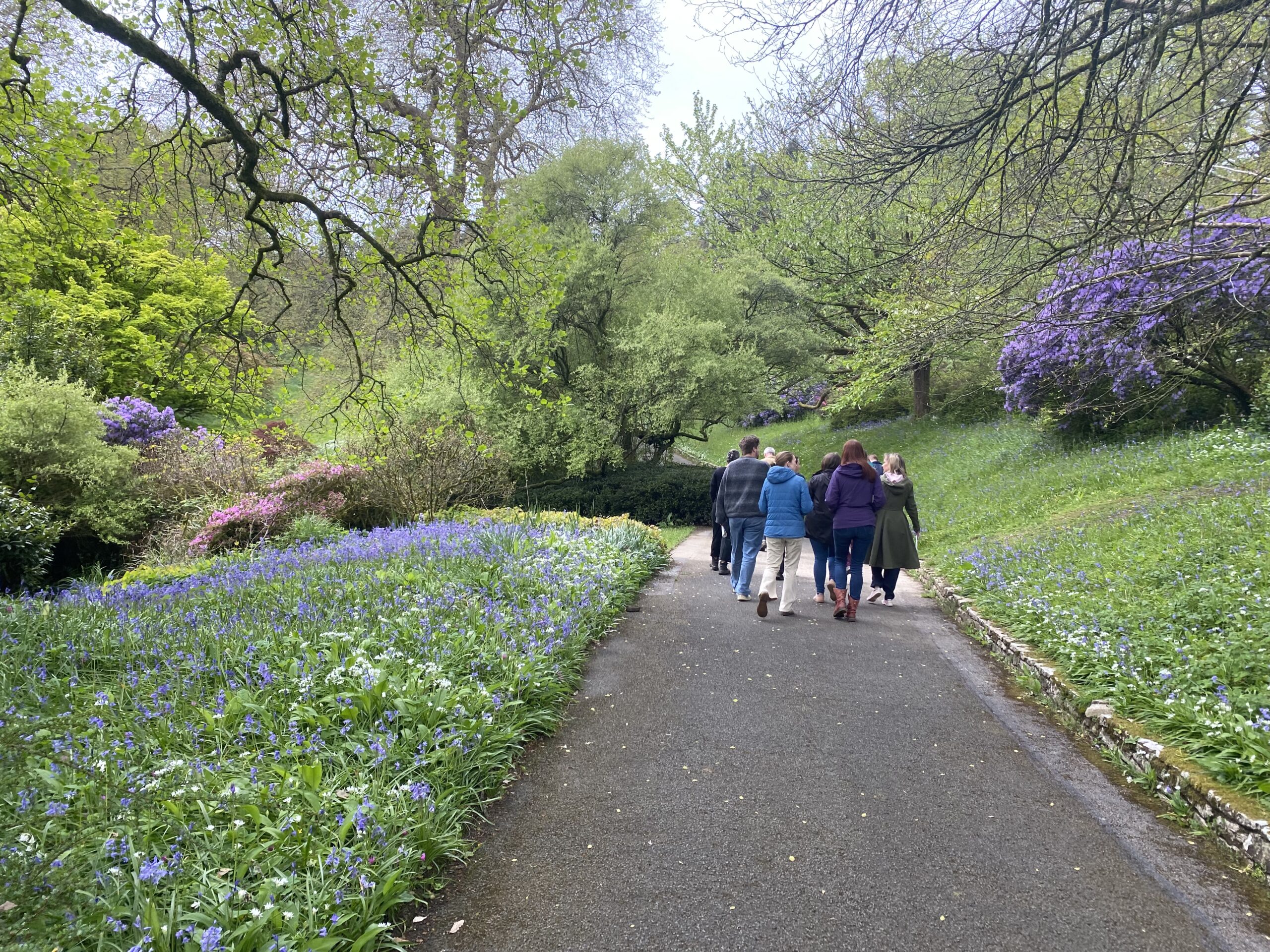
Walk and talk led by Prof. Michael Winter
So how do you follow Gemma? Nervously, I tried to introduce the concept of Action Learning Sets to the College, knowing it can be an incredibly powerful way to learning but without full engagement, it dies. Three separate groups set up focussed on leadership, transdisciplinary and communication. I honestly felt privileged that the group I facilitated fully embraced and exposed our innate vulnerabilities as leaders. Which is pretty exhausting. We intend to continue these between our annual retreats.
So it felt apt when Sarah Golding ran a session on sustaining ourselves to work in sustainability. And all off the cuff without her slides (due to tech). And with some incredibly sensible and useful tips to reclaim time from ‘saying no’, setting boundaries to switching off your work phone. Sarah reminded us we are ‘worthy of rest’. We can go slow. So we did. We closed our eyes for 15 minutes and just clenched and unclenched various parts of our body. Which later caused much hilarity.
After dinner, she took us outside to enjoy the abiotic features of our environment. Observing the darkening sky, the stars, a shooting meteor, even some bats (although you had to be hard core to stay out and see them 😉), and just feeling the breeze on our face.
And so to the final morning … whereupon Lewis took us through the possibilities of FOI as a research (or campaign) tool – and whilst there were salutary stories of vexatious excess, he demonstrated that with persistence, FOI has potential power to generate transparency and thereby influence policy.
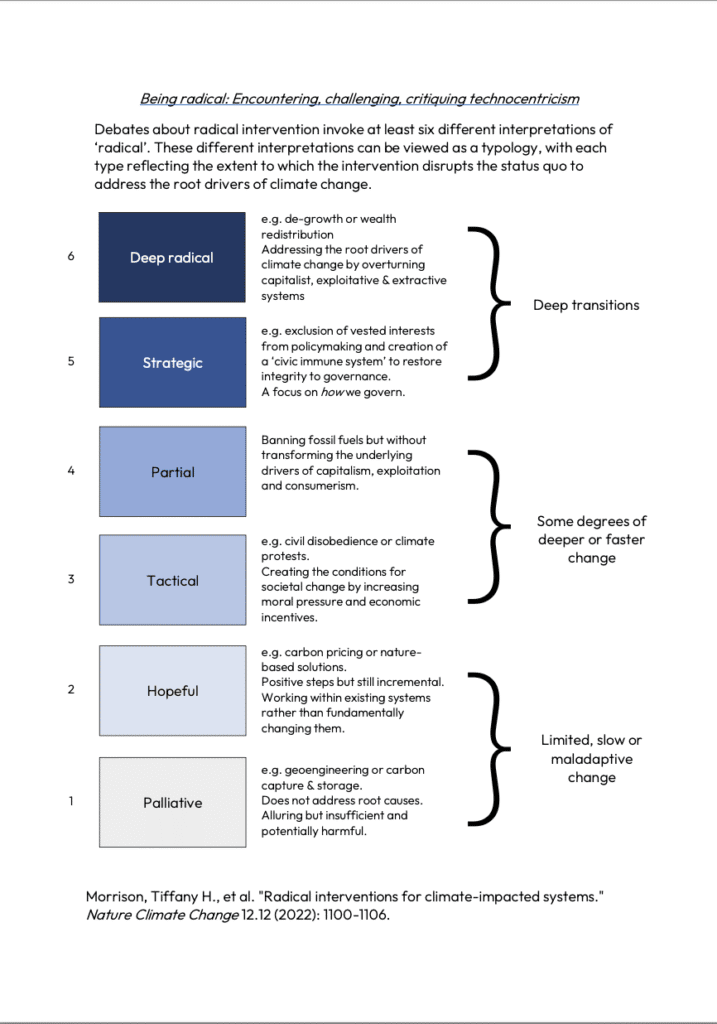
Mandi Bisset’s ‘radical typology’ handout – based on Tiffany Morrison’s ‘Radical interventions for climate-impacted systems’
And before we knew it, we were nearly finished. But not before Mandi gave us an incredible send-off – using provocations from Patrick Devine-Wright, Genevieve Guenther, Dhanasree Jayaram and Tiffany Morrison (and using her radical typology – see left).
Mandi challenged us to think about being ‘radical[1]’ particularly when encountering, critiquing and challenging technocentrism (for instance, solar geo-engineering, ocean fertilisation or carbon capture) as a likely way for us to escape the worst effects of climate change.
Where on the typology will our leadership sit? An interesting aside; the value of ‘hope’, whilst useful to create more beneficial outcomes, is argued to be insufficient to generate transformational change.
Calling our annual get-together a retreat seems a misnomer … in truth, it is always intense. But I wouldn’t have it any other way. It feels in someways a luxury, an opportunity to step away from the day to day, to learn, to think, to reflect and to inform our practice. Someone described it as an ‘intellectual spa’ but hopefully in a non-pretentious way. Generating hopeful (and truly radical?) leadership where collaboration trumps hierarchy, a participatory purpose-driven approach that seeks to preference participation, inclusion, deep listening, dialogue and a learning culture. Enabling us to leverage environmental social science to address the pressing climate and nature emergencies of our time. That’s our glue – perhaps not traditional instrumental outcomes (after all, leadership remains stubbornly difficult to quantify) but rather providing a true collective of diverse leaders. And no doubt we will continue to do so into the future. Bring on 2026!
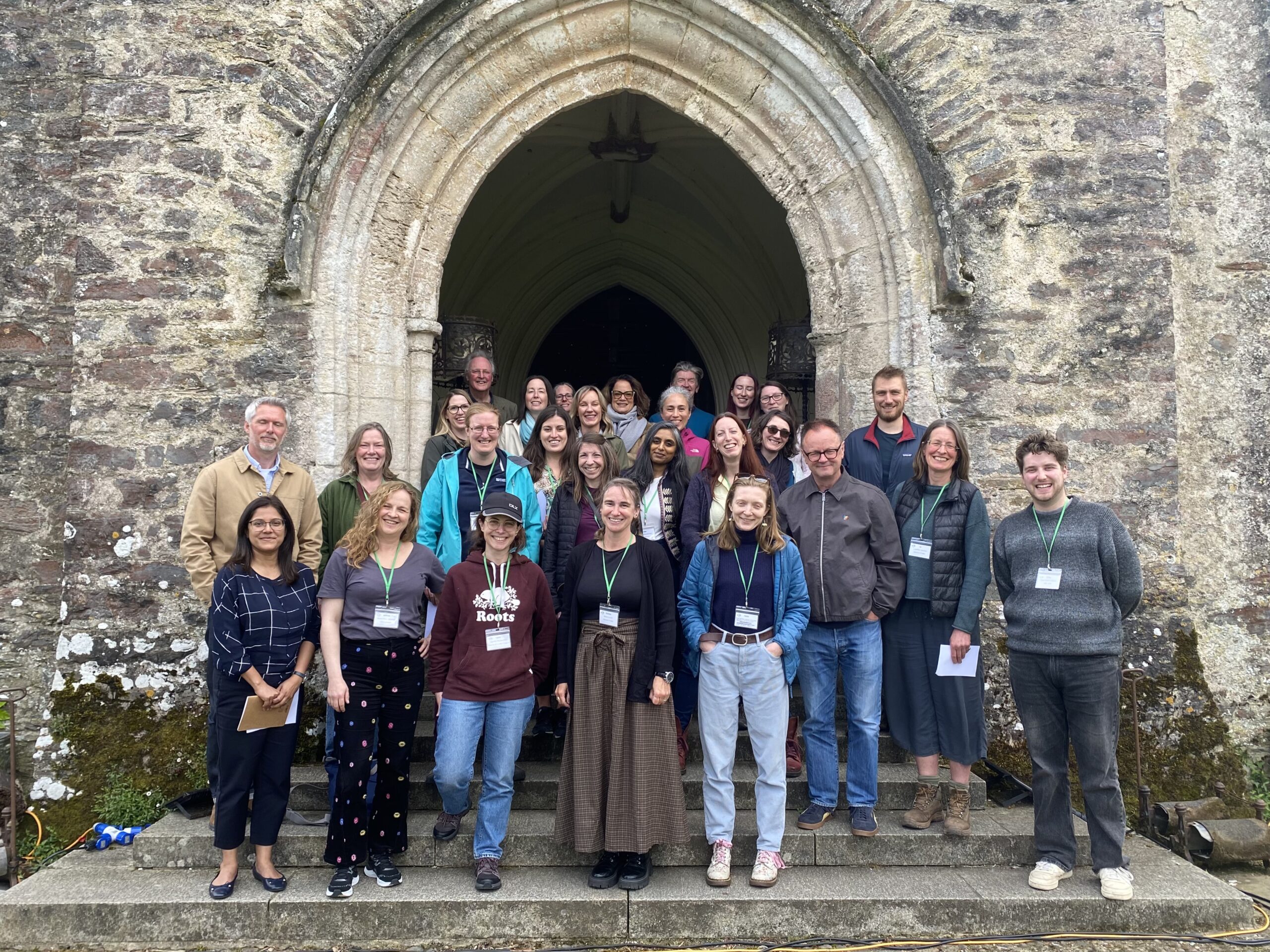
The 2025 ACCESS Leadership College outside Dartington Hall
[1] Morrison uses the Latin adjective radicalis meaning ‘of or relating to a root’, in effect identifying the root drivers of a problem, rather than the proximate causes and symptomatic effects. She argues powerfully that rather than the proximate causes of climate change being issues of fossil fuel consumption and land clearing, the root drivers are capitalism and materialism, asymmetrical power relations and the lock-in of exploitative and extractive systems.
